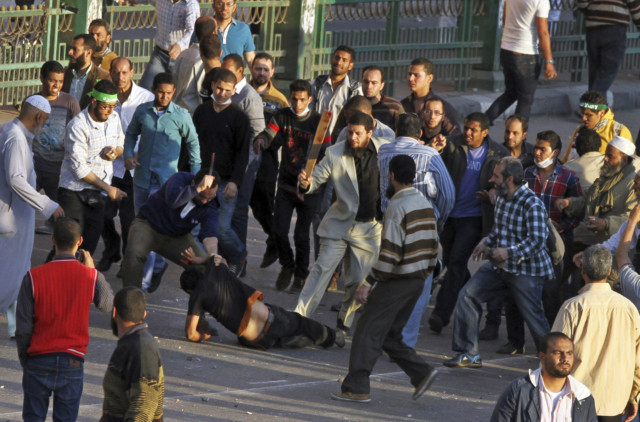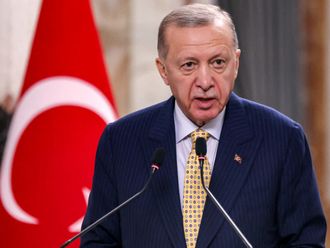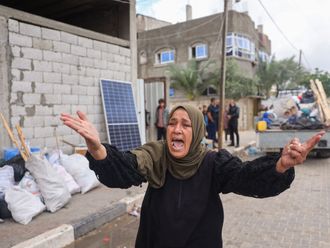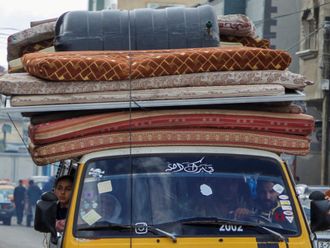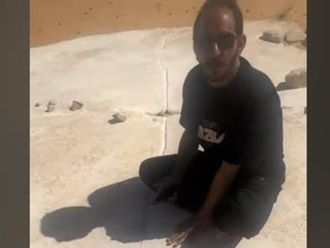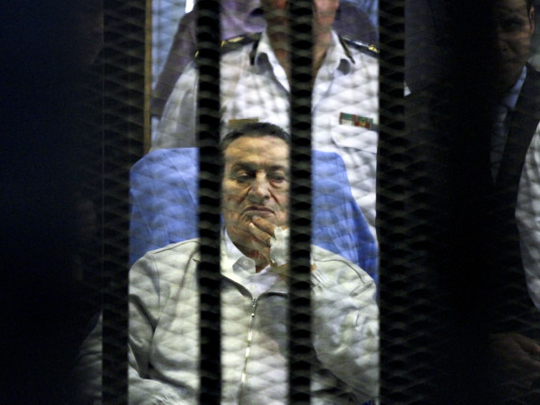
Cairo: An Egyptian court on Saturday ordered the release of Egypt’s deposed president Hosni Mubarak pending further investigation into corruption charges, but he will continue to be imprisoned on two other corruption cases.
The decision by a misdemeanours court in Nasr City came days after another court ordered Mubarak released pending his re-trial in a separate case alleging responsibility for the deaths of nearly 900 protesters during the 2011 uprising against him. In that case, an appeals court in January threw out a life sentence against him, granting him a new trial, which is set to resume on May 11.
Tala’at Abdullah, Egypt’s prosecutor general, plans to appeal the latest release order.
Mubarak has been in detention since 2011 and currently is in Tora prison in Cairo.
Setting Mubarak free, even temporarily while on trial, is a contentious issue in Egypt. Many perceive the release as evidence of the failure of the revolution to achieve justice and hold former regime officials accountable. Others, who contend his release is justified, are increasingly frustrated with what they see as incompetent leadership by Mubarak’s successor, Mohammad Mursi, and the Muslim Brotherhood from which he hails.
The court order came a day after violent street clashes erupted between proponents and opponents of Mursi. The violence was sparked when the president’s Muslim Brotherhood backers took to the streets to call for a “cleansing” of the judiciary and for loyalists of the former regime to be purged from state institutions.
Egypt’s secular-minded and liberal opposition rejected their call. They deemed it a cover for upcoming measures by Mursi and the country’s temporary parliament to liquidate the judiciary and infuse their own members in a way to monopolise the judicial branch.
The judiciary has been a significant battleground in the political unrest that has swept Egypt during the past two years since Mubarak’s ouster.
It is the sole branch of government not dominated by Mursi’s Islamist allies. Some judges accuse Mursi of trying to undermine their authority, while the president’s allies charge that Mubarak supporters in courts are blocking Mursi and trying to derail Egypt’s transition to democracy.
The country’s economy has deteriorated, foreign reserves have been drained, tourism is on the slide and Egypt’s attempts to secure a much-needed $4.8 billion loan from the International Monetary Fund have stumbled because of the political crisis.
The opposition has demanded that Mursi change the Cabinet, appoint a new prosecutor general and provide guarantees for fair and free elections.
In a posting on Saturday on his official Twitter account, Mursi promised to reshuffle the Cabinet and appoint new governors.
“The qualified will be the ones taking responsibility to achieve the goals of the revolution,” Mursi’s posting read.


